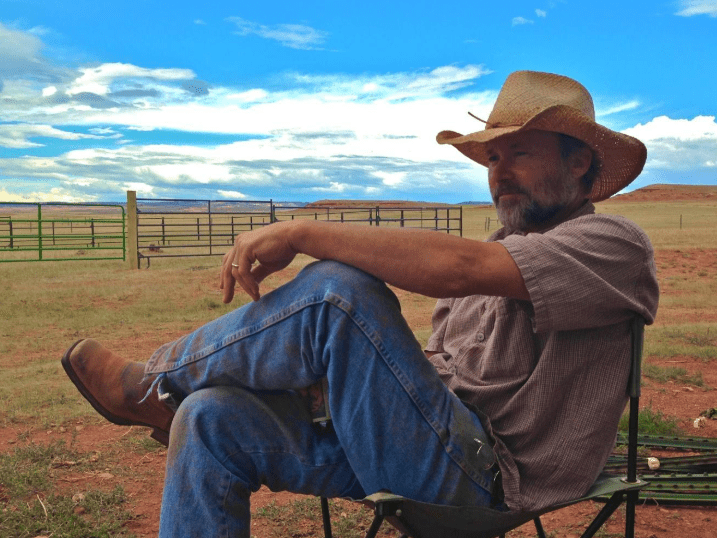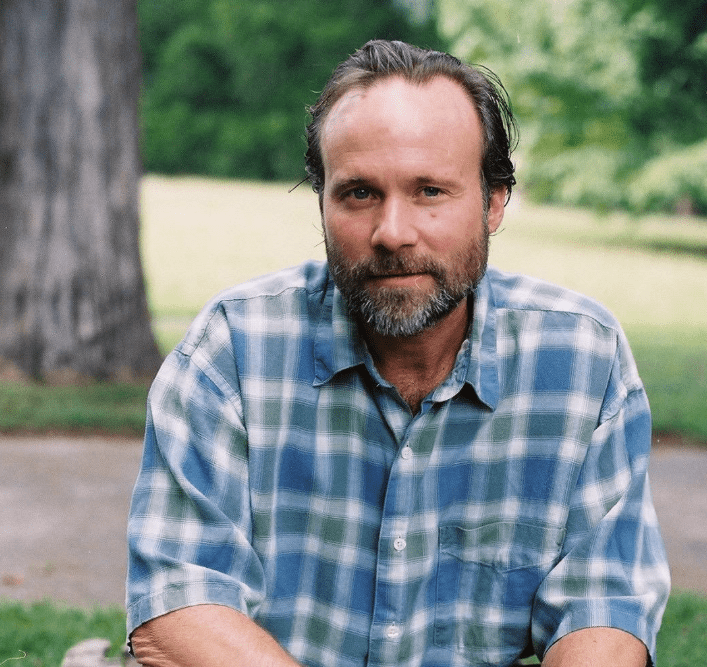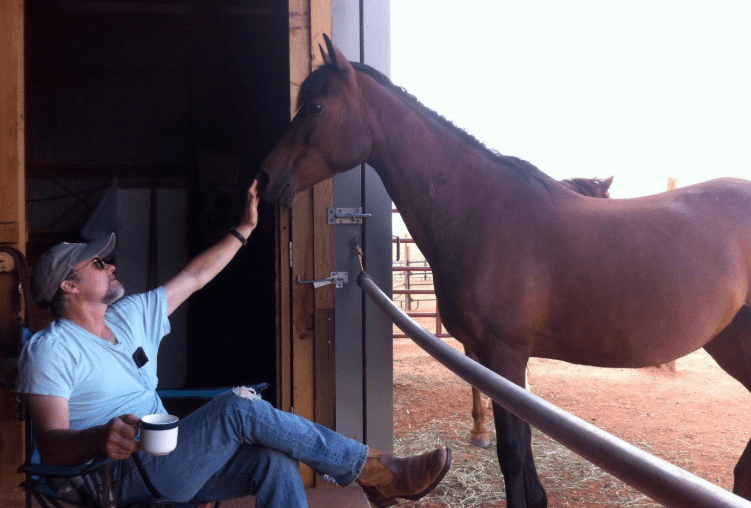By: Richelle Putnam, Magnolia Tribune
Wilton Brad Watson was born in Meridian, Mississippi, on July 24, 1955. His parents were Robert Earl Watson and Bonnie Clay, and he had two brothers: Clay, the oldest, and Craig, the youngest.
Brad’s son, Jason, recollects some of his father’s earliest memories when he was a student at Poplar Springs Elementary School. Brad built his childhood stories around the woods between 46th Street and North Hills Street, where the neighborhood kids ran wild and made forts. Brad and Clay played Little League baseball for the Southerners, sponsored by Southern Railroad. The baseball field was across the street from the old bowling alley on North Hills Street. Neither are there anymore.
“I always loved to hear about his hanging out and his part-time job as a clerk at Temple Grocery up on Poplar Springs Drive. He and his friend Scotty Mills worked there in junior high and early high school,” says Jason. “As with any neighborhood store, a wide range of characters frequented the store he told stories about, a few probably not appropriate to talk about.”
Yet, perhaps Brad’s greatest early passions were high school theater and the Meridian Little Theatre. He married while still in high school, and after graduation, his wife and their son, Jason, moved to Los Angeles so Brad could pursue acting. However, his brother Clay’s tragic, untimely death in a car accident brought Brad and his family back to Meridian.
“It was a tragedy and terrible loss for the family,” Jason recalls. “It was in February 1974 when Clay was killed, and we moved back soon afterwards. I think it made him a better father in that he realized, like many, how fragile life can be, and not to take anything for granted.”
Brad and Jason’s mom divorced when he was three. While in grad school at the University of Alabama, Brad skipped many weekend parties in Tuscaloosa to come home to Meridian.
“He would make sure he saw me every other weekend,” says Jason. “I think back to how much patience he had with me, always making sure to visit me when he had the opportunity. He always made a point to read to me at night before bed, and he loved reading me safari stories and books about big cats in Africa/India.”
His father’s personal stories run deep; some of the best were told at the dinner table or while grilling. One favorite story was about his dad’s afternoon with renowned writer Barry Hannah in 1978 in Tuscaloosa.
“He spent all afternoon and evening with Barry, moving from one bar to the next, wild tales about Barry’s blunt and sometimes crude personality and an uncomfortable altercation with Barry’s family that happened at Barry’s home when they stopped by for beers before going out again.” Barry was speeding around town when he asked Brad, “What’s the matter? Are you afraid to die?”
It had only been four years since Brad lost his brother Clay.

A Quiet Genius Emerges
Brad Watson’s literary career began slowly, with scrupulous revision and self-doubt. His debut collection, Last Days of the Dog-Men (1996), took nearly a decade to complete. The stories were sharp, strange, and deeply humane. The collection won the American Academy of Arts and Letters’ Sue Kaufman Prize and the Great Lakes Colleges New Writers Award.
“He was certainly doing some writing in the late 70s and the early 1980s,” Jason says. “I just remember him being very focused. He wasn’t a TV guy—the TV was never really playing. He was usually reading or typing manuscripts. And yes, he would revise and revise endlessly.”
Jason says Brad respected the works of Flannery O’Connor, Eudora Welty, William Faulkner, Raymond Carver, and Hemingway “so much that he believed he owed good work to the art of writing.”
Yet his students mentioned Brad’s extensive range of genres, including Southern literature and authors worldwide, like Gabriel José García Márquez.
Jason reminisced about reading his father’s first novel, The Heaven of Mercury. ” He told his dad, “Don’t take offense to this, but I can’t believe you wrote this.”
Jason says that Aliens and Miss Jane were just as meaningful to him, and spoke about the emotional range of his father’s work.
“He could be funny with a sense of humor, but also melancholy. People sometimes say his work can have dark or gothic elements, and those resemble things going on in his real life.”
Teacher and Mentor
Brad taught creative writing at Harvard, the University of Alabama, and the University of California, Irvine, and, from 2005 until his death, he directed the creative writing program at the University of Wyoming.
“I am so proud that his students mention him as being so generous,” Jason says. “I think they realized he was taking time away from his writing to provide guidance and mentorship. He was the same as a father.”
Author M. O. Walsh first met Brad in 2004 when he was an M.F.A. student at Ole Miss and Brad was starting his one-year stint as the Grisham Visiting Writer. In Walsh’s July 30, 2020, tribute to Brad, published in The Paris Review, Walsh wrote about seeing Brad just after his novel Miss Jane had been published. He noted how every Brad Watson novel had been a National Book Award finalist and confessed that if he could have had one writer’s career, it would have been Brad’s. (Walsh, 2020)

A Life Intertwined with Family
What Jason remembers most is his father’s way of valuing every person.
“He had grown up in such a tumultuous time in the 1960s with civil rights… and he would get very angry on hearing of racism or people being treated the wrong way. His example made me take stock of how to treat people how I wanted to be treated, regardless of who they were.”
Jason says Brad had matured as a father by the time his second son, Owen, arrived. Brad was in his 30s, and his life experiences had better prepared him for fatherhood.
“I think he also saw a lot of himself in his students. Probably by mentoring them, he could appreciate Owen and me that much more.”
Final Chapter, Lasting Presence
On July 8, 2020, Watson died suddenly of cardiac failure at his home in Laramie, Wyoming. He was 64.
“I was amazed by the outpouring of love from his friends upon his death. Many of his friends still call and check on me and my brother, Owen.”
Brad Watson knew how to write about Southern life, and though it was raw, unsettling, and sometimes humorously bizarre, his compassion for human fragility spilled onto pages in unflinching detail and honesty.
In Walsh’s Paris Review tribute, he also wrote, “Brad seemed able to do what so few writers can; he never let his ego rush the story. He did not grab for the low-hanging fruit. He was patient with his characters, with himself, and kind to everyone else in the process.” When Walsh told Brad this, he replied, “Yeah, but I’ve never made the best seller lists. I don’t know. I always wanted to write just one book that was read.” (Walsh, 2020)
“Yes, he may have won many awards, but it was also a tough struggle sometimes,” says Jason. “He wasn’t immune to that either.”
Jason points out that we should just as much recognize his dad’s mentorship of the students he loved and the significant friendships he formed.
So, Brad Watson’s legacy may be less about awards and accolades and more about the students, readers, friends, and family forever touched by this quiet genius from Meridian, Mississippi.

